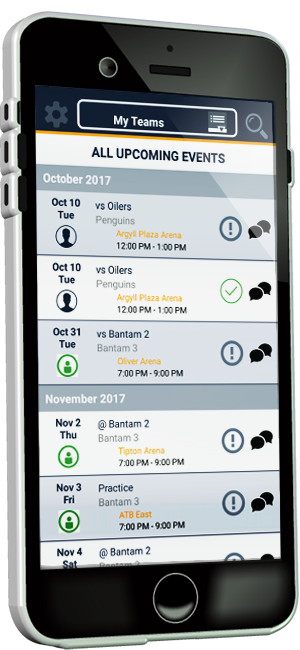Code of Conduct - Children

SC Central Alberta
Code of Conduct to Protect Children
Introduction
SC Central Alberta has adopted the following Child Protection Code of Conduct to guide our employees/ volunteers in their interactions with children. The safety, rights, and well-being of children we serve are at the core of our programs. We nurture supportive relationships with children while balancing and encouraging appropriate boundaries. This policy covers a child or young person who is under the age of 18 and engaged in any club activity with SC Central Alberta.
Why is a Child Protection Code of Conduct Important?
Our organization is committed to ensuring all children are protected and safe. A Code of Conduct is an important part of creating safe environments for children. The safety, rights and well-being of children participating in our programs is a priority in our daily operations. The intent of the Code of Conduct is to guide our staff/volunteers in developing healthy relationships with the children involved in soccer programs delivered by our organization and to model appropriate boundaries for children as seen in the Rule of Two, Abuse and Safety policy, and SC Central Alberta’s Guide to Interacting with Children and Adolescents.
Treating Children with Dignity and Maintaining Boundaries
All staff/volunteers must:
- Treat all children with respect and dignity
- Establish, respect, and maintain appropriate boundaries with all children and families involved in activities or programs delivered by the organization.
It is important to monitor your own behaviour towards children and pay close attention to the behaviour of your peers to ensure that behaviour is appropriate and respectful and will be perceived as such by others. All your interactions and activities with children:
- should be known to, and approved by the board, where applicable, and the parents of the child
- tied to your duties, and
- designed to develop the child’s skills in the sport program
Always consider the child’s reaction to any activities, conversations, behaviour, or other interactions. If at any time you are in doubt about the appropriateness of your own behaviour or the behaviour of others, you should discuss it with the designated person within your organization.
Examples of unacceptable behaviour toward a child:
- embarrassing
- shaming
- blaming
- humiliating
- putting them down
General Rules of Behaviour Staff/volunteers of the organization must not:
- Engage in any sort of physical contact with a child that may make the child, or a reasonable observer feel uncomfortable, or that may be seen by a reasonable observer to be violating reasonable boundaries.
- Engage in any communication with a child within or outside of duties with the child, that may make the child uncomfortable or that may be seen by a reasonable observer to be violating reasonable boundaries.
- Must adhere to the policies set out by the Rule of Two, Abuse and Safety policy, and Guide to Interacting with Children and Adolescents, including travelling with children.
- Engage in any behaviour that goes against (or appears to go against) the organization’s mandate, policies, or Code of Conduct to Protect Children, regardless of whether they are serving the organization at that moment
- Conduct their own investigation into allegations or suspicions of potentially illegal or inappropriate behaviour - it is a staff/ volunteer’s duty to report the matter to the designated person, Child Welfare Agency, or law enforcement, not to investigate.
What Constitutes Inappropriate Behaviour Inappropriate behaviour includes:
- Inappropriate Communication - Communication with a child or his/her family outside of the context of duties for the organization, regardless of who initiated the exchange. For example:
- Personal phone calls not tied to duties with the child
- Electronic communications (email, text message, instant message, online chats, social networking including “friending”, etc.) not tied to duties with the child
- Personal letters not tied to duties with the child
- Excessive communications (online or offline)
- Inappropriate Contact - Spending unauthorized time with a child outside of designated duties with the organization.
- Favouritism - Singling out a child or certain children and providing special privileges and attention. (for example, paying a lot of attention to, giving or sending personalized gifts, or allowing privileges that are excessive, unwarranted or inappropriate.)
- Taking Personal Photos/Videos - Using a personal cell phone, camera, or video to take pictures of a child, or allowing any other person to do so, as well as uploading or copying any pictures you may have taken of a child to the Internet or any personal storage device. Pictures taken as part of your job duties are acceptable, however, the pictures are to remain with the organization and not be used by you in a personal capacity. Inappropriate behaviour also includes:
- Telling sexual jokes to a child or making comments to a child that are or is in any way suggestive, explicit, or personal.
- Showing a child material that is sexual in nature, including, signs, cartoons, graphic novels, calendars, literature, photographs, screen savers, or displaying such material in plain view of a child, or making such material available to a child
- Intimidating or threatening a child
- Making fun of a child Inappropriate behaviour will not be tolerated, especially as it relates to the well-being of the children involved in activities or programs delivered by the sport organization. Whether or not a particular behavior or action constitutes inappropriate behaviour will be a matter determined by the organization having regard to all the circumstances, including past behaviour, and allegations or suspicions related to such behaviour.
What to do if you Witness Inappropriate Conduct?
All staff, volunteers, and parents must report suspected child sexual abuse, inappropriate behaviour, or incidents that they become aware of, whether the behaviour or incidents were personally witnessed or not.
Where to report:
- All allegations or suspicions of potentially illegal behaviour (for example, child sexual abuse) that a staff/volunteer witnesses first-hand, must be promptly reported to police and/or child welfare.
- All allegations or suspicions of inappropriate behaviour (see above examples), that a staff/volunteer/parent learns of or witnesses first-hand, must be reported to the Technical Director (sccentralalberta@gmail.com).
Keep in mind that you may learn of potentially illegal or inappropriate behaviour through the child or some other third party, or you may witness it first-hand.
Examples of the type of behaviour you may learn of or witness and that you must report as set out above includes:
- Potentially Illegal behaviour by a Staff/Volunteer of the organization
- Potential Illegal behaviour by a third party, such as a Parent, Teacher, Babysitter, Coach
If you are not sure whether the issue you have witnessed or heard about involves potentially illegal behaviour or inappropriate behaviour, discuss the issue with the Technical Director of our organization who will support you through the process.
Upcoming Events
Mar. 02, 2026 to Mar. 06, 2026
U9-U12 Tryouts
Tryout for U9-U12 (Boys and Girls) for the 2026 Outdoor Season
Mar. 17, 2026 to Mar. 20, 2026
U13-U17 Tryouts
U13-U17 tryouts for the 2026 Outdoor Season




